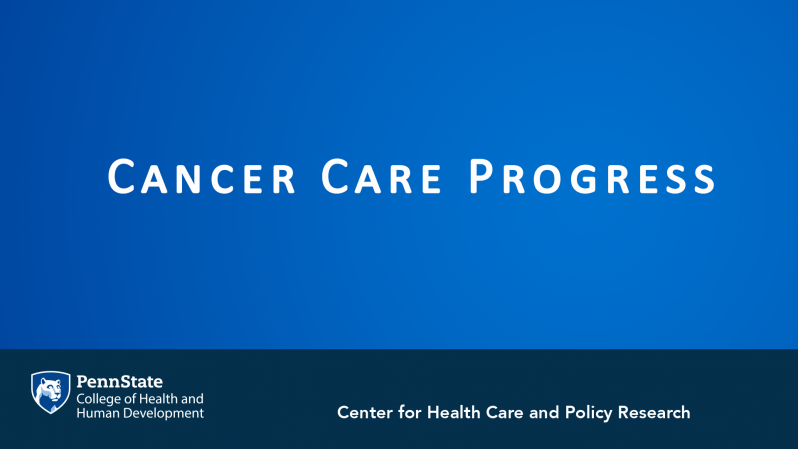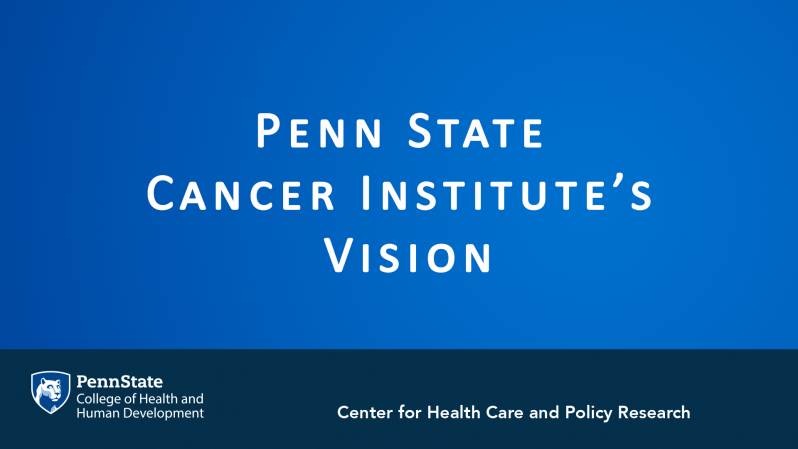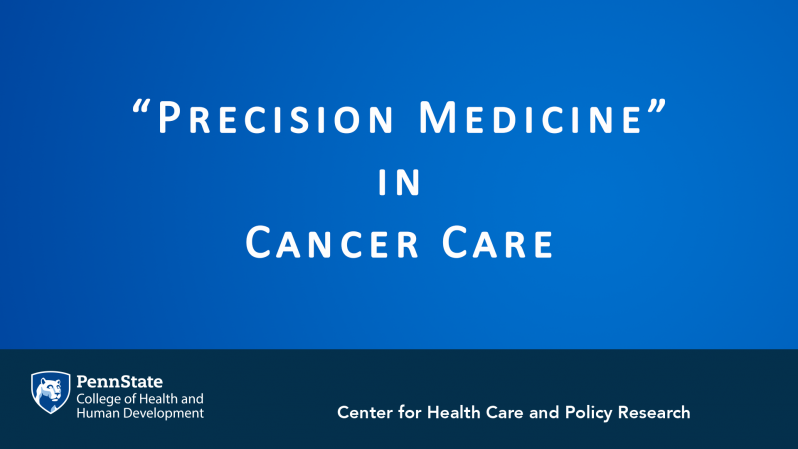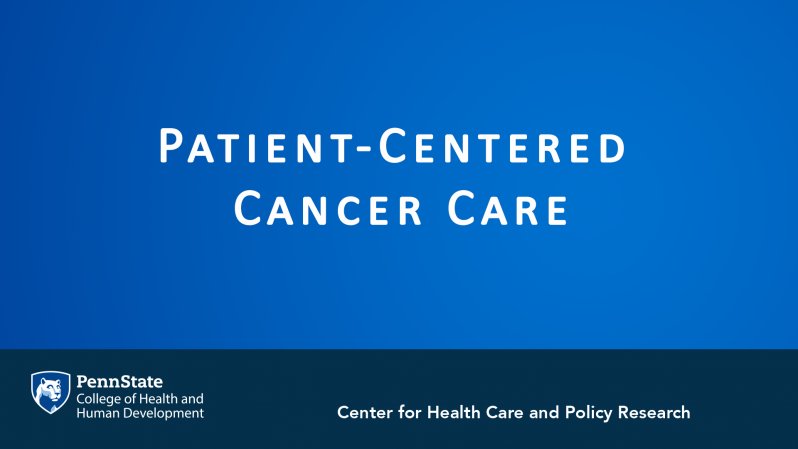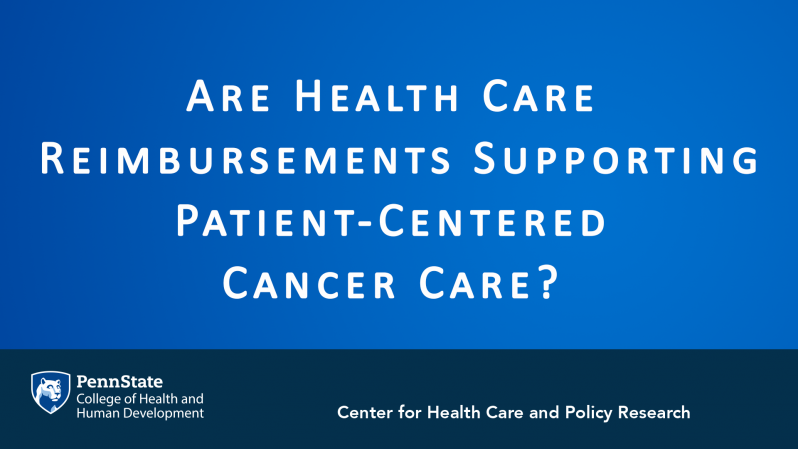Making Cancer Care Patient-Centered
Ask the Experts
In the sixth discussion in our “Ask the Experts” series, Dr. Dennis Scanlon speaks with Ray Hohl, MD, Director, Penn State Cancer Institute to discuss cancer care, including progress made in the field, making care “patient-centered,” and coordinating research efforts.
Interview Highlights
Reasons for progress in cancer care
“I’ve been in the field for 30 plus years. During that time we have made many, many strides…the number of deaths that go along with having been diagnosed with cancer are going down…quality of life is substantially improved…a lot of that continues to be related to improvements in picking up cancers earlier, so early detection and screening, and a little bit of head roads into prevention…Because the best way to treat a cancer is either to prevent it…but really picking them up earlier.”
Penn State Cancer Institute’s vision and working toward National Cancer Institute designation
“We have members…the majority are at the Hershey Campus, which is where the medical school and main medical center is. Increasingly, we have members who are based at University Park and so the Cancer Institute itself is a collection of scientists…all fundamentally working on cancer related issues and we bring them together in an environment where there can be collaboration and interaction between them …we’ve had enormous growth and that has led to really innovative research programs that we haven’t had before, but at the end of the day it is all focused on improving the outcomes for patients with cancers.”
“National Cancer Institute (NCI) accreditation…is an acknowledgment by the National Cancer Institute that we are doing everything right in their mind. So we’d join an elite rank of 70 plus cancer centers or institutes around the country that have gone through a very rigorous [accreditation] process whereby the quality of the science we do, the excellence of the patient care we provide, the outstanding clinical science we do in terms of what we are doing to bringing therapeutic modalities and applying to patients, and what are we doing with regard to population science.”
“Precision medicine” to customize cancer care for patients
“The term precision medicine really evolved out of something we used to use a lot more and that was personalized cancer care. It was really in President Obama’s State of the Union address where he adopted the term precision and that was the first time that personalized was transitioned over to that…and it has been picked up widely…A lot of therapies historically have been either surgical approaches, almost a one size fits all, a drug approach where one drug is going to treat all of the individuals with this type of breast cancer. The precision part is we now recognize, for example breast cancer…there are different types…now we have many many more targets and differences…We see this in lung cancer in particular and that is the one people have been most excited about…those agents are drugs that are very selective for certain patients with lung cancers…and the challenge is they tend to be pretty effective…but because these drugs…take a lot of resources to develop and prove that they are safe and get them out to physicians and consumers, they only apply to relatively small numbers of patients, so the cost of them just goes up. The hope is that they are going to be so effective, that the economic loss that patient has…is going to be less expensive to pay for these very expensive interventions because that person can contribute longer.”
Patient-centered cancer care
“The challenge for a patient who gets cancer is there are a lot of different options out there…and there are many different types of providers…the medical oncologist, the surgical oncologist, the radiation oncologist and they will have different opinions. For the patient it is very challenging to (1) have people on the same page, and (2) hopefully feel confident everyone is talking to each other…So we work really hard…and the patient centered aspect of it is we as health care professionals are working to come up with the best plan for the patient. That is just the medical part. Now you get into the other layers. The medical therapies we offer, depending on the patient’s insurance…one may be a preferred treatment versus another one, but there may be large differences in out of pocket costs for the patient…That’s another layer the patient has to choose from. The thinking is that with patient centered care, all of that kind of comes together around the patient where they can make the best informed decision for themselves…Probably the best way to deal with that…is patient navigators that we have. Penn State Medical School, we have a program whereby medical students in their first and second years serve as patient navigators and hook up with the patient early on.”
On whether health care reimbursement is supporting patient-centered cancer care
“It is moving in the right direction, but it is not quite keeping up. We used to have a very basic fee-for-service model…Now you hear the term “bundling” where…the provider will receive a set amount of money to care for that patient. That is good, but potentially it can be bad…because there can be disincentive for providing top care. But then can take it a step further…where it is providing these enhanced delivery approaches, where…a bundle of funds to take care of that patient… is really intended to cover all areas of medicine that cover that patient. That all of a sudden requires someone coordinating how exactly they are going to do this. It is a healthy process we are going through. It remains to be seen which model is going to come out and work the best.”

